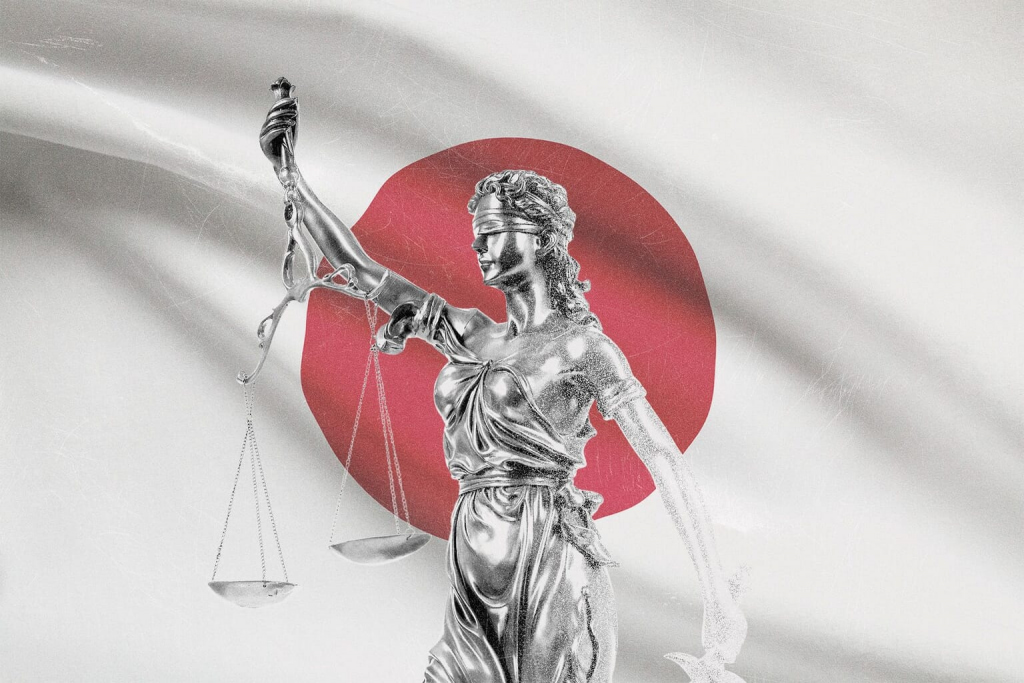There is a dark underside to Japan, one that is not shown in cute Ghibli films and sparkling recreations of Lost in Translation.
In contrast to its many technological advancements, as a developed country — and a member of the Group of Seven (G7) — Japan is known for being somewhat archaic in certain cases of modern life.
Japan is ranked 120 out of 152 countries for gender equality. Women in Japan lag far behind male counterparts when it comes to top jobs and earnings.
With regards to drugs, Japan is famed for its unforgiving blanket drug laws. Celebrities are named and shamed by the media, causing them to lose jobs and sponsorship deals. A recent high-profile example is musician Koki Tanaka in February of this year.
Just last week Japan ruled that its ban on same sex marriage was constitutional. According to polls, however, the public feel it should be legalized.
There are, however, people who challenge Japanese law and with a good reason.

Case 1: Aoi Glass — Ayahuasca
Since March 2020, Aoi Glass has been awaiting trial for a drug crime in which the drug may or may not exist.
A trained chemist who wrote the book Getting High on Plants, he has researched extensively at university level about the effects of the Peruvian drug ayahuasca. He found a way to recreate the effects of ayahuasca using a special type of acacia tea, using ingredients that can be found and grown easily across Japan. He then sold the tea experience and ingredients to make the tea, encouraging people who wanted to relax and experience the effects of DMT (a byproduct of the tea) for themselves.
Rather than hiding under a ‘legal high’ front, in which the manufacturer claims that their drugs are ‘bath salts and not for human consumption, Glass is transparent about its effects. On his website, he gives instructions on how to use the tea and what to do if one may run into difficulties. He even advises calling the police because ‘you have done nothing illegal so needn’t worry.’
Nonetheless, he was arrested by the police for manufacturing, consuming and dealing the ‘drug.’ This is despite the fact that technically, acacia is a tea, not a drug.
As of June 17, 2022, the trial has been delayed twice, with Glass defiant in the midst of the indecisiveness displayed by authorities.
Case 2: Elin McCready — Gender Transition and Same Sex Marriage
Elin McCready is a transgender woman who transitioned in the US. Upon returning to Japan, she requested to update her gender to female on Japanese legal paperwork. The Japanese government refused, so McCready is currently suing them.
To understand this case, we need to know two things:
1. Japan is currently the only G7 country that does not permit same sex marriage.
2. Japan forces transgender people to get sterilized so they cannot have children of their own.
The issue: McCready has been married to her wife since 2000 and they have three children.
If Japan were to recognize McCready’s gender, they would have to indicate on her marriage certificate that she is legally married to a woman. She also has three children. If Japan officially recognizes her gender, then effectively her Japanese children would have a biological, transgender parent.
If McCready wins the case, then she and her wife would be the first same sex married couple in Japan.
To support her, you can donate to her crowdfunding page here.
Case 3: Naho Ida — Petitioning for the Right to Choose Your Name
This case comes down to gender roles and having a choice. Japan is currently the only country in the developed world which forces couples to use the same surname after marriage.
In a 2016 survey, only 4 percent of men changed their names to their wife’s name. The societal expectation is that the women will change in favor of the husband’s name.
Naho Ida, who founded a lobby group on the subject has done this not once, but three times, saying that she’s changed more than 100 documents over the course of two marriages. Many women and men, who are lobbying the government to change the law, say that changing a name feels like social death, having to start from scratch all over again. They feel that the overbearing expectation from society forces them to change their names.
Cases include Seiji Yamasaki’s, who’s been with his partner for 38 years as they didn’t want to change their names and Izumi Oji’s, who felt the social death so strongly that she divorced just to get her own name back. She is still living with her partner in marital harmony, just not on paper.
Many of the campaigners, including Ida, state that having to choose between changing a name and getting married should not be an issue.
In 2018, Ida campaigned to bring the case to court, raising over ¥1.5 million on Campfire, the Japanese crowdfunding website. Ultimately, they lost the case but are hoping to appeal again. Follow Ida’s journey here.










